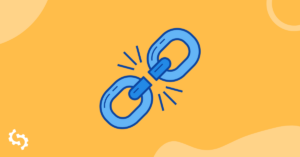
Killing them means killing the Web.
Cloud Czars are killing them anyway. One fourth of the links created during the last decade are now broken. This makes the Web useless as a source for research or in use as footnotes.
Current Affairs magazine calls the result “gated knowledge.”
I first noticed this with Microsoft, which turns news links into “MSN” links that can’t be copied into stories. It’s part of the company’s effort to do to Chrome what it did to Netscape 30 years ago, forcing the Edge browser onto users as part of the operating system
Now I see Amazon links from Google, even in e-mails, all reverting to the Amazon home page. If you look up a book, and you see an Amazon link to the book, and you click on that link, you’ll be on Amazon’s home page and must search all over again.
These aren’t 404 breaks where a page is taken down. These are deliberate breaks between large sites, created systematically, often to promote dumb “AI” answers that keep you on the search engine. This goes beyond ending support for Google’s goog.gl link shortener. These are full links that are breaking, not shortened links.
The excuse is that “SEO parasites” and “AI-enabled spam” are causing the havoc. The New York Times reported recently on an AI “chop shop” that was pretending to be a reputable news site.
It’s Everywhere

Scammers have taken advantage of this to change user-agent headers and send people who click on a legitimate link to their scam pages.
Some of this is happening because news sites behind paywalls don’t want people accidentally reading their stuff. If that’s the case, why are you publicizing it by putting what purports to be a link online, with a garbage description that hints something big is behind it (but there usually isn’t).
No one seems to be doing anything about this. No one outside the truncated tech press even seems to be mentioning it. Maybe the destruction of the Web isn’t that big a deal to some. But it’s time users, and governments, started doing something about it.
What Must We Do?
The World Wide Web Consortium can do something about this. The Biden Administration can do something about this.
The W3C can announce an emergency “link summit” to discuss ideas for reducing link rot. The Biden Administration can call the CEOs of the Cloud Czars to the White House and pressure them to cooperate with each other.
Maybe something will happen next year.










